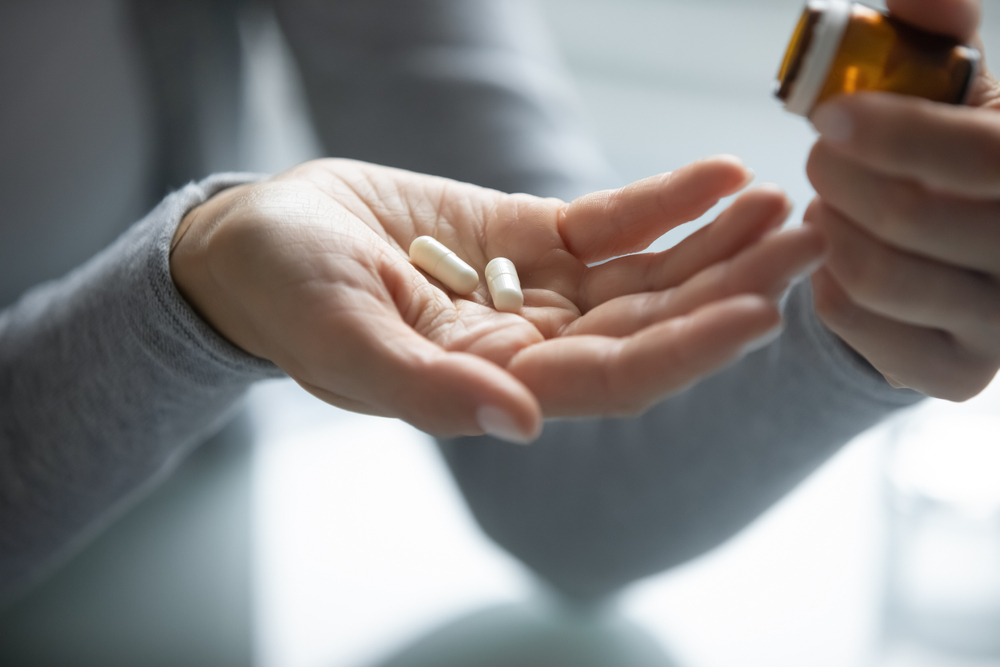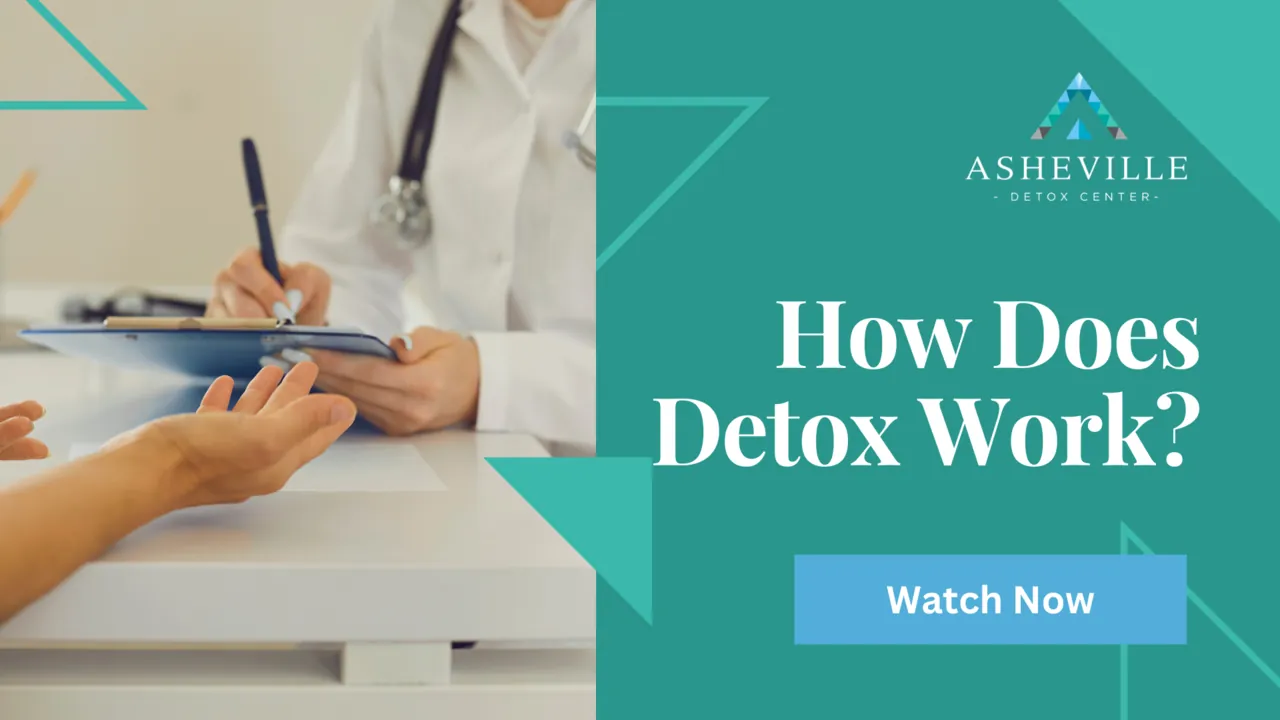Medical Detox In Asheville, North Carolina
Asheville Detox Center proudly offers medical detox services to individuals struggling to quit using substances and seeking to overcome the initial hurdle of addiction treatment.
Medical Detox in Asheville
Medical detox is the first and safest way to a successful recovery, and Asheville Detox Center takes our services very seriously. Our approach is to meet you where you are and provide you with the comprehensive care you deserve throughout the medical detox and addiction recovery process. This includes accepting most major insurance providers, including Humana, Aetna, and Cigna.
Asheville Detox Center’s clinically-proven detox process helps clients safely and comfortably withdraw from alcohol, opioid medications, fentanyl, meth, heroin, and other life-altering substances. Facing unpleasant withdrawal symptoms alone can make committing to detox difficult, which is why our detox staff is trained and ready to provide professional, supportive, and personalized care everyone deserves.
Detox at a Glance:
- Medical detoxification is the first phase of addiction recovery.
- Toxic and addictive substances are expelled from the body with the help of a physician during detoxification.
- When someone is at risk of drug or alcohol withdrawal symptoms, detoxification is clinically necessary.
- FDA-approved and clinically-proved medications are used to suppress cravings and alleviate withdrawal symptoms during detoxification.
- Medical detoxification normally lasts for five to seven days but can go up to 10 days in some cases.
- Addictive substances that require medically assisted detox include prescription opioids, fentanyl, heroin, benzodiazepines, alcohol, and methamphetamine.
What is Medical Detox?
Medical detox is the process of eliminating physically addictive toxic substances from the body under the supervision of licensed medical professionals. Asheville Detox Center’s detox program is headed by doctors, clinicians, nurses, behavioral health technicians, and therapists. We also maintain a 24-hour medical treatment staff to help with side effects, co-occurring mental health disorders, and any other health concerns that can arise during detox. Medical detoxification plays the same role in addiction that a hospital emergency department does in managing long-term medical conditions.
A hospital emergency department for an asthma attack is a comparable example. The process stabilizes acute flare-ups of a chronic condition, but it does not alter the long-term course of the illness. Those seeking intensive drug and alcohol treatment who prioritize medical detoxification at the beginning of treatment are more likely to stay in treatment longer and experience longer periods of sobriety. This is why Asheville Detox Center is part of a larger addiction recovery organization offering various inpatient and outpatient programs designed to carry clients through each treatment milestone.
Our Typical Detox Process
Once you submit a client application form or call and sign up, our admissions agents will walk you through Asheville Detox’s intake plan and typical detox process.
- Evaluation: One of our clinical professionals will perform an in-depth initial evaluation to assess a client’s substance use, current physical and mental conditions, allergens, and medical history. This typically includes a blood test and full health analysis to measure the extent of a substance use disorder. Clients will also be assessed for their potential for acute and post-acute intoxication and withdrawal symptoms, as well as other biomedical conditions. After the assessment, we’ll design an individualized treatment plan and determine the detoxification level of care.
- Stabilization: Our detox program ensures clients are monitored, comfortable, and supported with fluids and vitamins to restore nutrients lost to addiction and medications, such as Suboxone, Methadone, and Phenobarbital, to reduce or eliminate withdrawal symptoms. We also have on-site therapists and clinicians who are ready and able to mentally and emotionally support clients throughout their stay.
- Aftercare: Successfully completing our detox program helps clients transition into short-term residential treatment, long-term residential treatment, or outpatient addiction treatment through one of our clinical partnerships. We’re connected with treatment centers in North Carolina, Tennessee, and Massachusetts, offering adventure therapy, holistic treatments, sober living facilities, and more!
Why is Medical Detox Important?
Medical detox greatly reduces the chance of experiencing severe withdrawal symptoms. If any of the symptoms listed above do arise, Asheville Detox’s trained medical team will be right there to provide warranted medication or medical treatment. In addition to clinical supervision, we also offer supplemental treatments such as medication-assisted treatment (MAT) to alleviate mental health disorder symptoms and provide a more comfortable experience.

How do you know when addiction has become a chronic condition and acute treatment like medical detox is necessary? A substance is physically addictive and typically requires medically assisted detox if:
- A client has attempted to quit using substances and found it impossible without help.
- A client suffers from physical and mental withdrawal symptoms when they quit using, including vomiting, nausea, headaches, constipation, cravings, depression, and anxiety.
- A client has developed a tolerance to a substance and requires increasing amounts to induce the same effects.
- A client has a history of chronic substance use in large quantities.
- A client continues to use substances despite the risk or presence of side effects, physical health disorders, mental and interpersonal challenges, or damage to their career or academic path.
Withdrawal symptoms, caused by the chemical actions in the body when a substance is consumed or not consumed at all, vary from substance to substance. For example, opioid withdrawal can involve flu-like symptoms, while alcohol and benzodiazepine withdrawal can involve hallucinations and seizures. Detoxing from almost every addictive substance induces uncomfortable and dangerous side effects, and Asheville Detox was founded to help those who need help in and around Asheville, North Carolina.
What Drugs Require Medically-Assisted Detox?
The following substance use disorders must be assessed and treated for potential withdrawal symptoms:
Alcohol: Alcohol depresses the central nervous system in the brain, which controls involuntary body processes such as temperature regulation, heart rate, blood pressure, stress reactivity, and motor activity. Alcohol withdrawal can cause an increase in body temperature, an increased heart rate, high blood pressure, anxiety, and tremors, among other symptoms. Withdrawal from alcohol can also be fatal without medical intervention as severe symptoms may include seizures, hallucinations, and delirium tremens, the most deadly side effect of alcohol withdrawal.
Opioids: Opioids include natural, synthetic, and semi-synthetic drugs derived from the poppy plant that have been used for centuries to manage pain. They can be naturally occurring, like morphine and codeine, or synthesized in a laboratory, such as fentanyl and methadone. Opiates are a subset of opioids and are naturally occurring alkaloids found in the opium poppy’s latex, which includes morphine, heroin, and codeine.
When administered, opioids mimic the body’s natural endorphins, competing and eventually winning the control for receptor binding. Because the presence of opioids halts endorphin production, the body will depend on the effects of external opioids to compensate for the absence of these substances. Withdrawal symptoms include cold and clammy skin, muscle aches, anxiety, nausea, and vomiting. While opioid withdrawal is not a lethal condition on its own, its symptoms can be extremely unpleasant.
Benzodiazepines: Commonly known as “benzos,” benzodiazepines are central nervous system depressants and sedatives used to treat anxiety, seizure disorders, and sleep disorders. Benzodiazepines have a similar chemical impact on the body as alcohol, resulting in comparable withdrawal symptoms. Xanax, Ativan, Valium, and Klonopin are examples of benzodiazepines.
Stimulants: Non-prescription stimulants include methamphetamine, cocaine, and ecstasy. Prescription stimulants include Adderall, Ritalin, and Dexedrine. Even though stimulants don’t induce physically lethal withdrawal symptoms, psychological side effects include severe depression, anxiety, loss of motivation, loss of appetite, insomnia, and irritability.
Prescription Drugs: Many prescription medications can be misused to achieve a high or to relieve stress. Benzodiazepines and opioids are not the only prescription drugs that may be misused. Muscle relaxants, sleep medications, gabapentin, and other drugs can be misused in a variety of ways. Each type of prescription drug has unique withdrawal symptoms. Still, substances such as muscle relaxants or sleep medications act similarly to central nervous system depressants like alcohol and benzodiazepines.
Synthetic Drugs: Medical detox can successfully address withdrawal symptoms associated with many synthetic drugs or “designer drugs,” such as bath salts, krokodil, or kratom, in addition to the notorious synthetic opioid fentanyl.
Typical Medications Used During Detox
Detox can be physically and mentally strenuous, and some clients can benefit from FDA-approved medications designed to ease and reduce withdrawal symptoms and cravings. To prevent abuse and ensure individuals maintain their treatment plan, medications are only administered after clearance by one of our primary clinicians on a patient-by-patient basis.
Keep in mind that as addiction treatment and detox solutions are further researched and developed, these medications are subject to change. The most common medications used during detox include:
- Suboxone: Suboxone is used to help clients who are detoxing from opioids, as its main component, buprenorphine, targets the same opioid receptors at a much milder effect. Some clients can slowly taper off their Suboxone dosage as they progress through treatment, while others may choose to remain on Suboxone long-term to reduce lasting cravings.
- Naltrexone: Naltrexone blocks the effects of opioids and is also prescribed to reduce alcohol cravings.
- Klonopin/clonazepam: Klonopin is typically used to help clients taper off alcohol or benzodiazepines since it targets the same areas in the brain. Klonopin itself is a benzodiazepine and is never prescribed as a long-term treatment.
- Topamax/topiramate, Antabuse/disulfiram, or Campral/acamprosate are also prescribed for alcohol dependence.
Asheville Detox Center takes great measures to ensure clients are comfortable while detoxing, administering various comfort medications, including Gabapentin, Vistaril/hydroxyzine, and Robaxin/methocarbamol.
- Gabapentin helps with withdrawal symptoms, anxiety, cannabis cravings, alcohol dependence, restless leg syndrome, and tremors.
- In some cases, we can prescribe medications for anxiety sometimes, such as low-dose trazodone, low-dose Seroquel, clonidine, and propranolol. Robaxin (muscle relaxer) and Vistaril (Antihistamine) can also be prescribed to treat anxiety.
- We mainly use trazodone, Seroquel, and Remeron to help withdrawal symptoms that induce insomnia. We do not allow or prescribe controlled sleep medications or stimulant/controlled ADHD medications during detox.
- We also can provide over-the-counter medications for aches, pains, headaches, constipation, nausea/vomiting, diarrhea, allergies, stomach cramps, dry eyes, and acid reflux. Our partnerships with pharmacies ensure that requested medications arrive the same day.
As part of our medication-assisted treatment component of detox, we can discuss and prescribe medications for underlying mental health issues, such as anxiolytics, antidepressants, mood stabilizers, antipsychotics, and non-stimulant medications. We can also start sleep medications if needed, as mentioned above.
Note: Tapering is when prescribed medication doses are slowly decreased over time until withdrawal symptoms have been heavily reduced or eliminated.

How Long Does Our Detox Program Last?
Medical detox typically lasts for five to seven days; however, the length and intensity depend on a few factors, such as:
- The substance of abuse: Withdrawal symptoms and length of withdrawal are dependent on the substance used. Withdrawal from alcohol, for example, can occur within a few hours of the last drink and require a protracted substitute treatment.
- Duration of use: Long-term use of a substance can cause physical dependence in as little as six to eight weeks. Similarly, the more frequently an individual uses a substance, the more likely they will become physically reliant on it. Physical reliance on substances such as benzodiazepines and opioids can develop in as little as six to eight weeks with regular use.
- Quantity used: An increased amount of a substance creates a heavier burden on the body and thus requires more drastic measures to adapt to it. This results in faster tolerance.
- Other factors: The process of withdrawing from a substance is determined by a person’s body chemistry, weight, metabolic rate, and genetic makeup, in addition to the personal response to treatment. Clients must be mentally prepared and committed to the detox process to achieve the best results.
Is it Safe?
Undergoing medical detox is both safe and effective in eliminating substances from the body. Our medical staff, including experienced nurses and clinical staff, supervises every step of the detox process. Your personal treatment team will monitor vital signs such as heart rate, blood pressure, and temperature throughout the process to ensure a safe withdrawal. Our detox staff also provides holistic and competent support necessary to overcome mental roadblocks and cravings.
How Do I Find a Detox Center?
When you make up your mind to seek out a detox facility, you’ll probably look for local choices online. However, what next? How will you know which program is best for you? How can you locate a reputable medical detox center? You’ll want a center that:
- Has a team of expert, experienced personnel
- Is fully accredited and licensed by the state where the center is located
- Can handle on-site medical issues
- Is open 24 hours a day.
Asheville Detox Center is happy to provide every one of these vital requirements.

Medical Detox at Asheville Detox Center
At Asheville Detox, we have created a relaxing, serene environment in North Carolina because we want our clients to feel safe, supported, and at ease throughout the detoxification process. Detox specialists are present 24/7 to supervise the process, and supplemental services such as MAT are available to clients who might benefit from this additional care.
Our detox program also provides round-the-clock care for clients with co-existing mental health issues and those who are suffering from polysubstance abuse. Each client’s detoxification requirements are addressed, and case managers work with each client individually to determine the best next step in treatment once the individual has completed the detox program.
To learn more about medical detox or any of our services, contact the specialists at Asheville Detox today. We will beat addiction together.




